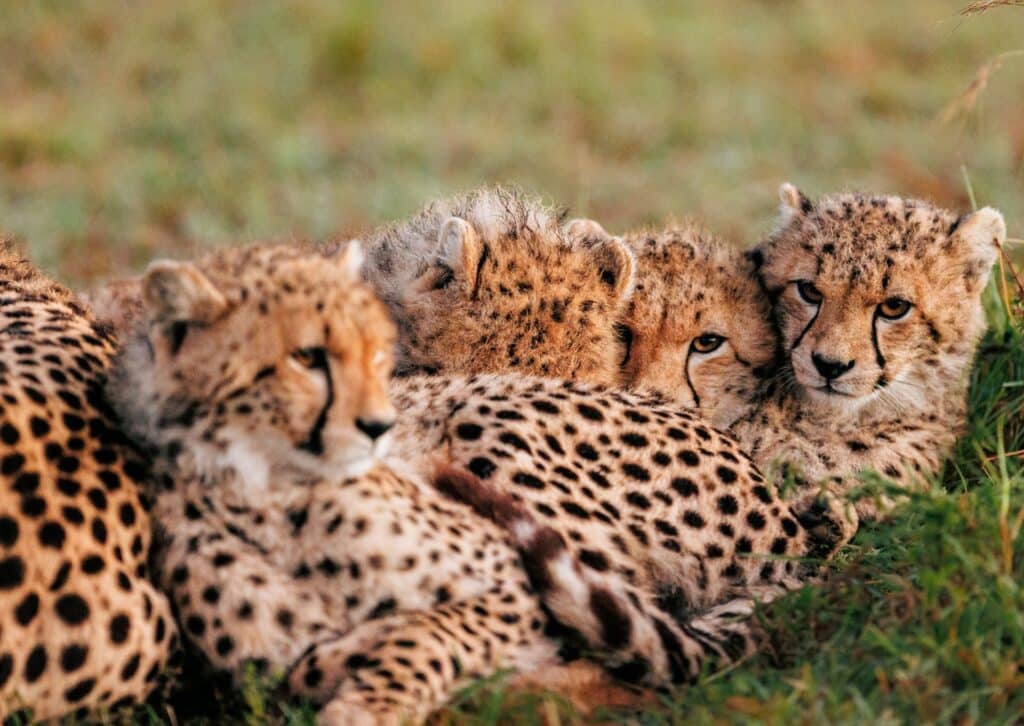The bobbing, nodding head of a vigilant topi radiated approval as much as it did a cautious awareness of his surroundings. He was beholding humans—Isharans, as this human subset are known—at work. These particular Isharans were at this moment being trained to perfect their craft under a tree beside their land cruisers at the waterhole. What, the topi might ask, could this craft be? He may never understand it, but he was witnessing Isharans in pursuit—not of him, but of service excellence.

To the Isharans, service of the topmost order is vital in helping them capture their highest prize—that of the creation of a soulful adventure for visiting non-Isharans. Ishara’s ideal goes well beyond simply offering the visual feast of a safari to see Mr. Bobble-Head Topi and his many friends and adversaries. Non-Isharans in the care of Isharans experience fluid and heartfelt conversation. Or, if they prefer, more simple exchanges, salutations, and smiles. No matter the interactive preference of the non-Isharan, the land of Ishara itself is purposefully yet seamlessly arranged so as to maximise the joyful effusion of wildlife-watchers without them having a clue of the choreography undertaken for their benefit. Each decision made at the extraordinarily gorgeous camp gently enables visitors to undertake their own inner safari—however pleasurable or bumpy—alongside the road leading toward the cheetah, giraffe, and lions of their dreams.

As rehearsal continued under the balanite tree, Mr. Topi added to his head signals by raising and lowering his hoof. What was he communicating this time? Coincidentally, the trainer he was observing also shifted her focus toward the essential vitality of clear communication among Isharans and between Isharans and their visitors. The synergy between communication, cooperation, and choreography on any stage releases untold power, and the Isharan trainees were well on their way to understanding the force attained by chain-linking the three C’s.
Watching the awkward topi movements in front of me while simultaneously witnessing the Isharans smooth their processes unlocked my own bobble head as I tried to communicate just a plain ‘hello’ to the topi. And for rigid me, thinking I could have a connective moment with the guardian of his little herd became my own magical moment that afternoon.
Non-Isharans who depart Ishara with their perspectives altered couldn’t be blamed for thinking that the butter-smooth operations they experienced in this little slice of heaven simply happened. But magic takes work to produce; it takes dedication and practice. Lots and lots of practice alongside hard work, communication, and heart. These are the ingredients Isharans throw into their organic cauldron to serve up their magic. All one has to do is to follow the scent.



My full-view of the Isharans at work was a privilege granted to me as both a wide-eyed tourist and a friend of an Isharan—so full disclosure. But the disclosure is ultimately unnecessary, for while I might have been given access to the painstaking rehearsals that created Isharan magic, every guest will experience the thrill of the inviting curtain rising on opening night. Smiles abound in this happy place where perfection behind the scene is constantly being sought. And if one arrives at Ishara finding it difficult to smile, then the Isharans make it their mission to try—however gently—to dig deeper into their bag of vast options to help bring one on. Don’t like the incredible menu? No problem—what can we make for you? Too early for a game drive? No worries—when would you like to go? Want to do yoga on our observation or star deck? Come stretch to nature at your leisure—and catch the sunrise diffusing its way through the morning mist. And then there are Isharan traditions offered that you wouldn’t even think to ask for: a traditional dance to welcome you; juices of esoteric tastes (and seeming powers) to ease your transition into the natural world; warm hand-towels after every game drive; guides who pack everything you didn’t even know you had forgotten as you began that drive. The Isharan gift-list feels endless.


And then, armed with your most relaxed self, you will likely see the wild and majestic creatures you have always yearned to see—in forms and social patterns you never imagined. The carefree and playful baby elephant getting underfoot its patient guardian contrasts with the serious young cheetahs following their mother almost in lock-step as though their lives depended on their undivided attention. And their lives do depend on it. The yawning baby hippo that’s lost its dentures juxtaposes the toothy play between adolescent lions. And through the messy chorus of night sounds—cricket-chirps interrupting kingly roars, and hippo grunts shutting down the whistles of insomniacal birds who have no respect for sundowner time—you might see the biggest game prize of them all: more of yourself.



48 hours in the land of Ishara is mercilessly short, but it’s enough to be reminded that there IS another way to perceive life. Phone signals in this place are negative disruptors; instead, paying attention in silence to the signs emitted by wild critters can provide a windfall of experiences. Our Isharan guide’s antennae were supremely tuned into silence. Through it, his eyes and ears conjured up a cheetah greeting the dawn with her cubs for our magical pleasure, and for a few glorious moments, our pleasure alone. His comprehension of animal vocabulary (unlike my broken attempt to speak topi) showed just how much we miss when we can’t embrace stillness.

Ishara’s silence is a constant yet gentle simmering cauldron that will serve up surprises and gifts you just cannot predict. It is the antithesis of one’s daily grind. So, if you’re able, sign out of your routine and find your own topi; you never know what you will discover through the bounces of each day and the stillness of each night.
Photo credits: Imara Njeri, Japheth Supeyo, Eric Averdung, Edward Ololoso